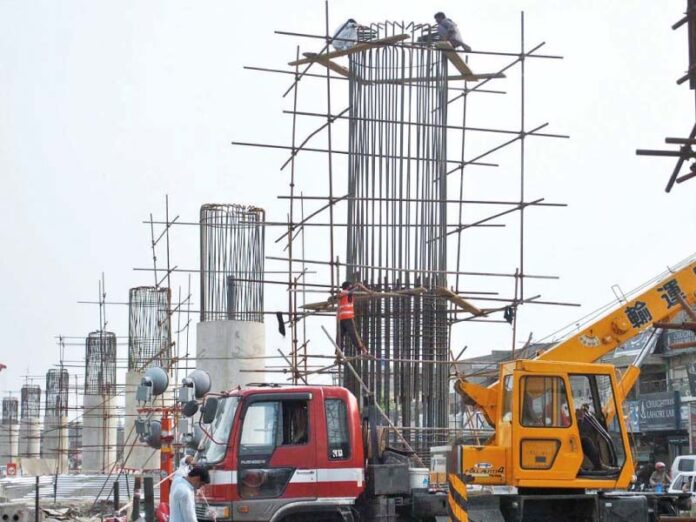Federal Minister for Planning, Development and Special Initiatives Ahsan Iqbal has said that the Public Sector Development Programme (PSDP) has shrunk from 2.6% of Pakistan’s GDP in 2018 to a mere 0.8% in 2025, putting immense pressure on the country’s ability to sustain growth and employment.
The planning minister on Tuesday chaired a meeting to assess the full-year performance of the Public Sector Development Programme (PSDP) 2024–2025, along with the first-quarter review of authorisation and expenditures under PSDP 2025–2026.
The session focused on the progress of development projects executed by ministries, divisions, and provinces, as well as strategies to streamline and optimise limited development funds for the current fiscal year.
The meeting was attended by senior management of the Planning Commission, federal secretaries, and senior officials from federal ministries, divisions, and provincial departments.
While addressing the ministries, the minister expressed concern over the shrinking development space, stating, “For the first time in Pakistan’s history, PSDP utilisation crossed Rs1 trillion last year, a record achievement. Unfortunately, this year, we are moving in reverse.”
He noted that the PSDP has shrunk from 2.6% of GDP in 2018 to just 0.8% in 2025, placing immense pressure on the country’s ability to sustain growth and employment. “The development budget is the backbone of national progress. In view of the IMF programme, some restrictions have curtailed the development budget. Therefore, every rupee must be spent on high-priority projects,” he added.
The minister informed that a special committee was constituted by the Prime Minister upon the request of the Planning Ministry. The committee conducted a four-day intensive review of all ongoing projects, recommending Rs1,267 billion for PSDP 2025–2026; however, only Rs1,000 billion was earmarked by the Finance Division.
He stressed the need for every ministry to thoroughly reassess its portfolios and bring forward only essential and high-impact projects. Delays in project revisions often result in cost escalations, as seen in the past when 36 projects were revised last year, doubling their cost, and 26 projects were revised this year under similar circumstances. The impact of cost revision and escalation amounted to over Rs1.1 trillion.
It was briefed in the review meeting that PSDP 2024–2025 started with a total throw-forward of Rs10,216 billion. The sponsoring agencies requested Rs2,904 billion for ongoing and new projects. The original allocation of Rs1,400 billion was revised downward to Rs1,100 billion, with actual utilization against the allocation reaching Rs1,077 billion, or 98%.
The ministry presented a performance review of ongoing projects, highlighting the need for improved fund utilisation amid fiscal tightening. Moreover, a portfolio review of PSDP 2024–2025 was conducted after the mid-year review, planned for the completion of 221 projects, while 123 were capped by June 2025, resulting in a reduction of Rs2 trillion in the overall throw-forward to focus on fast-moving and nationally significant projects.
During the formulation of PSDP 2025–2026, priority was given to ECNEC- and CDWP-approved projects, with no new provincial projects except those located in the least-developed districts. Notably, 62% of allocations are directed toward ECNEC/CDWP projects, and 98% toward ongoing project initiatives. A No Objection Certificate (NOC) will be required for the initiation of all new projects in view of resource constraints.
“The debt burden is rising, and the fiscal space is tightening. We must be responsible in our development planning,” he concluded, expressing hope that the next fiscal year would allow for a more robust and forward-looking PSDP.




